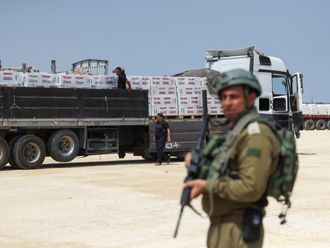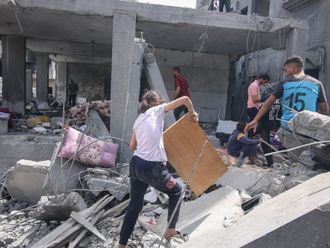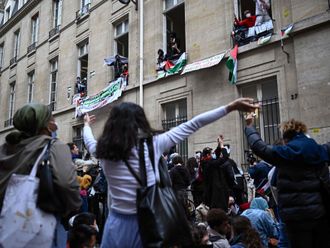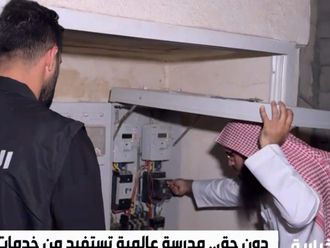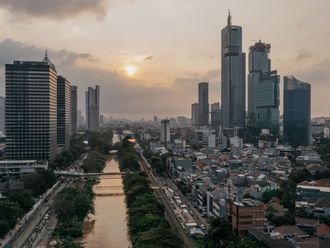Cairo: The Egyptian president defended on Thursday the tough economic measures undertaken by his government, saying there was no other alternative in the face of the country’s deteriorating economy.
“Structural reforms” are an imperative for Egypt, Abdul Fattah Al Sissi said, adding that the newly implemented measures are no “picnic.”
Al Sissi’s remarks were his first since the government’s unprecedented flotation of the Egyptian pound last month, meant to ensure that Egypt qualifies for a $12-billion loan from the International Monetary Fund, which the agency approved almost a week later.
In the move, the pound lost about half its value, plunging to around 18 to the dollar, a huge setback in a country heavily dependent on imports ranging from food items to raw materials. With salaries remaining largely the same, nearly everyone in the already deeply impoverished country effectively had a sudden, large pay cut.
The painful measures earned praise from the IMF and the international business community, but caused price hikes for the cash-strapped population, with Al Sissi risking a serious political backlash.
“The decision to carry out reforms ... was not easy,” Al Sissi told a gathering of clerics ahead of the Prophet Mohammad’s (PBUH) birthday, a major Islamic holiday. “The task requires hard work and patience.”
Al Sissi blamed the deteriorating economy on the past several years of unrest that have shaken Egypt since the ouster of autocratic President Hosni Mubarak in a 2011 popular uprising.
Elected in 2014 — almost a year after Al Sissi as army chief led the ouster of Islamist President Mohammad Mursi, following mass protests against the Islamist’s one-year rule — Al Sissi has since depended on billions of dollars of assistance from Gulf Arab countries such as Saudi Arabia. However, relations with the kingdom have become strained recently over several regional crises, including the conflict in Syria.
In his speech, the army chief-turned-president also reiterated earlier warnings against any attempts to “topple the state.”
Portraying himself as a staunch anti-Islamist advocate, Al Sissi urged for religious discourse to uproot extremism, something he has repeatedly said in speeches.
“They want to destroy and terrorise the children, the women, and the elders,” he said. “I want to tell them that God is on our side.”
Al Sissi has often invoked threats by Islamists to justify his heavy-handed security measures in which thousands of political opponents have either been detained or killed during protests, or received death sentences in mass trials.
Al Sissi has tasked Al-Azhar, the Sunni world’s most prominent religious institution that is based in Cairo, to carry out religious reforms.


